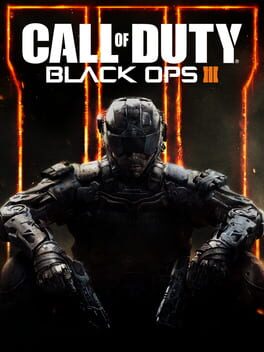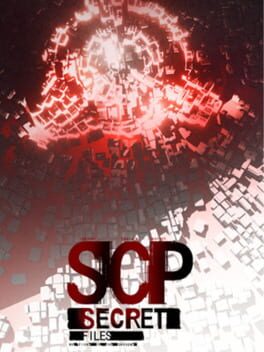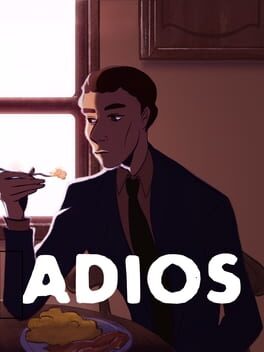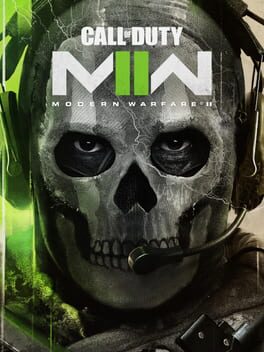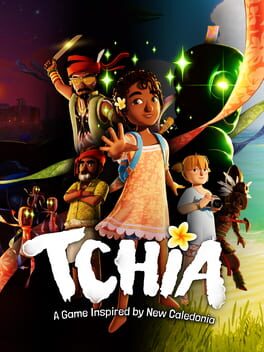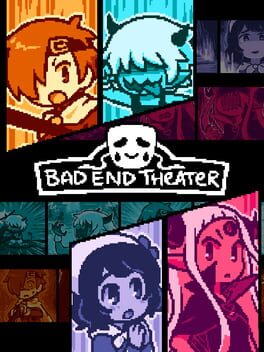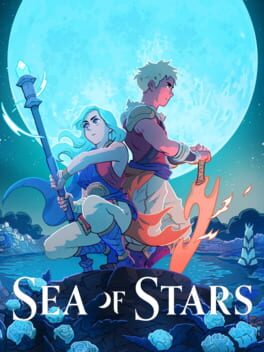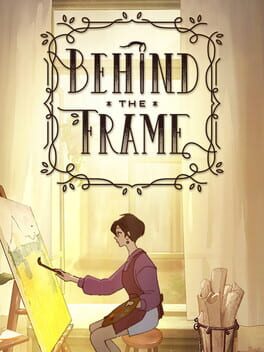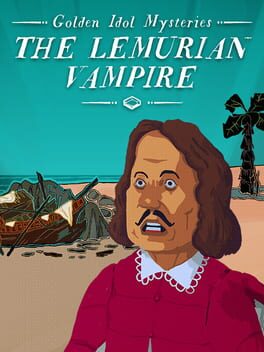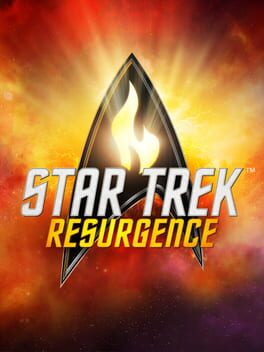Illusionary
Campaign completed on Regular difficulty with 100% of collectibles. With Black Ops III, Call of Duty takes its campaign in a heavily multiplayer-focused direction - and unfortunately, while I'm probably in the minority, this really isn't what I come to the series for. In place of 'epic' setpieces, the majority of encounters feel more focused on the sheer weight of enemy numbers, losing some of the more interesting level design. With the player character simply called "Player" in-game, this also makes the plot significantly less relatable and engaging, lacking the personal back-and-forth and camaraderie that suffuses the Modern Warfare subseries. The core gunplay is solid enough, of course, though the inability (by design) to pick up most enemy weapons leads to less experimentation. A cybernetical abilities (which might as well be a magic system) offsets this somewhat, though to be honest I never found all that much need to use it, especially later in the game where there's little in the level design to remind you to use these abilities. Finally, the division of campaign progress between online and local instances is another cause of frustration - while you're pushed towards playing online by default, an online session can't sustain itself between different times of play, which doesn't play well with modern implementations of Rest Mode and Quick Resume, as well as not being altogether stable in normal play.
2022
Completed with 100% of achievements unlocked. An interesting concept, SCP: Secret Files comprises a series of relatively short sequences, each completely distinct in style, exploring the behaviour of a supernatural phenomenon. The core of the game really is in the stories that it tells, though there's somewhat more to it than a "walking simulator" - and in those stories it finds a good balance of exposition and mystery, leaning somewhat into a horror angle at times. The gameplay is admittedly a bit clunky which means that it's not as satisfying an overall experience as it might have been, but still a worthwhile experience. I gather that the game is just a taste of a much wider 'lore' and while I'm not immediately compelled to seek that out, it's certainly a possibility in future...
2021
Completed with 100% of achievements unlocked (1,000G). Very limited on "gameplay", but this story of a pig farmer ending his connection with the mob is an interesting, deeply personal tale of remorse. This takes the form of a day in which the player undertakes chores around his farm, accompanied by the mob hitman - who while a close friend, ultimately has been sent to kill him. The writing and voice acting is excellent, serving the sell the concept very effectively - and while it's not a game that I'd soon replay, it's been a worthwhile experience.
Campaign completed on Regular difficulty. The original Modern Warfare cast really can't be beaten when it comes to Call of Duty campaigns, this was a blast. The story, while nothing particularly deep, feels meaningful through the character relationships that it develops, and there's impressive mission variety with memorable setpieces and even some well-judged stealth sequences.
2023
Complete playthrough. A beautiful tribute to New Caledonia and its culture, Tchia sadly didn't particularly 'click' with me. There's a decent supernatural story to play through and some emotional story encounters, but the core open-world gameplay overall just felt rather dull. Even making use of the possession mechanics, it takes far too long to travel from place to place, with little of note to find between points of interest. I understand the reasoning behind not including a precise location on the in-game map, being to encourage exploration, but in practice this just leads to a more frustrating experience than necessary - there are other, better ways to achieve this (look at the recent Zelda games, as an easy example) - and led to this being a relatively rare example of a game that I won't be trying to 100% for a reason other than difficulty. There's still a decent game here that I'm sure plenty will enjoy, it's just a bit disappointing to me having heard positive things about it before playing.
2021
Completed with 100% of achievements unlocked. Bad End Theater is a short, enjoyable puzzle-based visual novel, where the player takes control of one of four characters who then play through a short sequence based around a fantasy hero/demon conflict. Gameplay takes the form of several text-based choices, which ultimately lead to one of the titular bad end(ing)s. The novel twist comes from the four characters each taking part in a given run, and once you've experienced a given choice as one character, you can set then behaviour that they follow before starting a run with a different character - and thereby experience a different path through the decision tree of outcomes. It's a neat mechanic that works well, especially as you gradually find different paths and then different decision points. Despite the inevitably bleak outcomes, it all plays out with a sense of fun - and maybe there's a 'true ending' in there somewhere? The lack of long-term depth limits the game's overall potential, but it's fun while it lasts.
100% complete, 6/6 medals earned. Super Mario Bros. Wonder has a strong claim to being amongst the most creative and pure fun 2D Mario platformers, managing to shake up the standard formula significantly with the introduction of "Wonder flowers" into each stage, which transform the environment in any number of unexpected, often quite spectacular ways. To give just a couple of examples, a fossil might come alive as flying dragon, or the perspective might suddenly flip to a top-down perspective. These transformations are almost invariably great fun, and a very welcome addition. Beyond this standout addition, levels are impressively varied in design and satisfying to play through, often with interesting ways to hide the three collectible coins that each contains, and there's a wonderful (pun intended?) sense of personality throughout, especially with flowers that talk to Mario with brief quips as he passes them.
I can't help but feel that the power-ups weren't used quite as well as they might have been here, but those that are present are solid enough, with a handful of newly-introduced variations (the elephant flower being the source of many of the promotional images). Similarly, a badge system that provides a selectable ability through which to play through each level doesn't feel like it's taken to its full potential - perhaps some of these might have worked better as additional power-ups? Regardless, though these are only minor niggles in an excellent game.
A now-traditional Special World closes out the game, ramping up the challenge significantly, and there's certainly some great satisfaction to come from besting these final challenges - but do yourself a favour and if you attempt the final couple of gauntlets, do them with Yoshi and save yourself a lot of frustration!
I can't help but feel that the power-ups weren't used quite as well as they might have been here, but those that are present are solid enough, with a handful of newly-introduced variations (the elephant flower being the source of many of the promotional images). Similarly, a badge system that provides a selectable ability through which to play through each level doesn't feel like it's taken to its full potential - perhaps some of these might have worked better as additional power-ups? Regardless, though these are only minor niggles in an excellent game.
A now-traditional Special World closes out the game, ramping up the challenge significantly, and there's certainly some great satisfaction to come from besting these final challenges - but do yourself a favour and if you attempt the final couple of gauntlets, do them with Yoshi and save yourself a lot of frustration!
2023
Completed with 100% of achievements unlocked (1,000G). COCOON is a very impressive debut for Geometric Interactive, clearly inspired by Limbo and Inside (on which the studio's founders also worked), but now in a wholly puzzle-focused 3D setting. Taking place with a complete absence of explicit tutorial, the game nonetheless feels immediately intuitive, even with its novel core mechanic of multiple distinct worlds that the protagonist creature can dive into and out of, and carry about as spheres within other worlds to navigate through a detailed, eerie alien landscape. It's perhaps a little too straightforward at times, with many puzzles being overcome from trying to first approach that presents itself, but there are still a good number of somewhat mind-bending scenarios, especially in the latter parts of the game where juggling multiple worlds becomes commonplace. Art design is fantastic throughout, perhaps as expected given the studio founders' experience from Limbo and Inside, with a pervading otherworldliness and scenery that tells a story all by itself - and the game's ultimate ending wraps up the experience in (no spoilers) as satisfying a thematic manner as could be hoped.
2023
Platinum trophy earned. Sea of Stars is a gorgeous, stylish and satisfying tribute to RPG classics in the vein of Chrono Trigger, succeeding handsomely against that lofty aim. Its incredible pixelart immediately draws the eye, but beyond the surface level there's a well-developed world to explore, with an enjoyable story told through expressive characters who you can't help but come to love. Gameplay is relatively simple, based around turn-based battles with a typical resistance/vulnerability mechanic, but particularly enhanced by a novel approach to breaking enemy attacks through appropriate combinations of elemental effects. There's a certain satisfaction to be gleaned from devising attack patterns to meet seemingly intractable requirements, even if this never gets overly complex and, for example, there's a lack of any real buffs system that could greatly expand the tactical possibilities. I didn't really catch any of the references to Sabotage Studio's previous game, The Messenger, though I know that they're in there, and this is a second hit from them in my eyes.
Completed with 100% of achievements unlocked, including DLC. Nicely artistic but very limited in gameplay, Behind the Canvas is a point-and-click puzzle game based around interactions with objects in a painter's studio. Those puzzles are largely just based around pattern/colour recognition so there's little here by way of challenge - the hardest that it gets is locating the hotspots in the environment - and honestly I didn't find the game all that interesting. That said, it's clearly not designed with any great ambitions and as a relaxing, somewhat relaxing interactive story is decent enough.
Complete playthrough. A very solid send-off for the best detective game in a long while, The Lemurian Vampire brings three new, fairly complex scenarios that are once again thoroughly satisfying to solve. A few new mechanics add novelty to the gameplay, now with each chapter taking place over multiple points in time, alongside a quality-of-life improvement that carries "known information" between chapters. It's a shame that this is the final DLC for the game as I'd take as much as I can get of these scenarios, but I eagerly await whatever Color Gray Games come up with next.
Complete playthrough. Played after the first major patch, Star Trek Resurgence no longer suffers from the significant technical issues that seemed to be prevalent shortly after release. What remains is an enjoyable extended traditional Trek episode in the post-The Next Generation era, with an engaging story that switches between two protagonists. The degree of interactivity varies - in many cases just dialogue selection, but with a few 'minigame' segments based around shuttlecraft flight, stealth or phaser combat (for example). These work on a basic level, but, not being a major focus of the game, don't really excel and come off as a bit clunky. Again, though, the story is what players will come to the game for and on that measure, Resurgence stands as one of the better games set in the Trek universe.
2019
Completed with 100% of achievements unlocked, all puzzle pieces and family badges collected. Lightweight but enjoyable, Later Alligator's core gameplay comprises a series of mini-game challenges set by members of an alligator family inhabiting a fictional city, explored through a point-and-click interface is a point-and-click puzzle game. Entertaining though these can be, the game's strength lies in its excellent writing, laced with humour throughout, which carries the game through its fairly short (somewhere around a couple of hours) length.
Completed with all shrines beaten and all lightroots located. There's little that I can say that's not been said plenty of time before, but Tears of the Kingdom is a triumphant sequel to Breath of the Wild. Once again we have a suitably epic story to provide impetus for the gameplay, spanning the history of Hyrule, and with some unusually heart-wrenching moments. The game map is tweaked just enough to feel fresh alongside introducing a novel set of new puzzle-solving mechanics, and the introduction of additional 'layers' with the underground depths and the skies above adds a great deal to the exploration - even if that sometimes brings a bit of frustration. Throughout, the way that miniature puzzles are woven into the world is inspired and the sheer quantity (and quality!) of detail that's packed in means that there's rarely a time that you'll not find something of interest as you explore.
Of course, no game is perfect and I'm in the camp that's not a fan of the weapon durability mechanic, which mostly leads to frustration, even if I understand the intention behind it. The major 'temple' locations are a significant improvement over Breath of the Wild's Divine Beasts, but I still mourn the absence of the fully-fledged puzzle-based dungeons that always were a series staple. These do detract from the overall experience a little, but not enough to prevent it almost certainly being one of the strongest releases of a pretty packed year.
Of course, no game is perfect and I'm in the camp that's not a fan of the weapon durability mechanic, which mostly leads to frustration, even if I understand the intention behind it. The major 'temple' locations are a significant improvement over Breath of the Wild's Divine Beasts, but I still mourn the absence of the fully-fledged puzzle-based dungeons that always were a series staple. These do detract from the overall experience a little, but not enough to prevent it almost certainly being one of the strongest releases of a pretty packed year.
2019
Completed with 100% of achievements unlocked. The mobile roots are clear, but the PC version of Assemble With Care is a decent, polished translation of the touch-based interface. The primary mechanic of disassembling, fixing and then reassembling various objects/devices is satisfying, though with only limited options the depth here is limited - making the short length appropriate. A lightweight story helps to tie together the various chapters - enjoyable enough but again lacking any real complexity.
